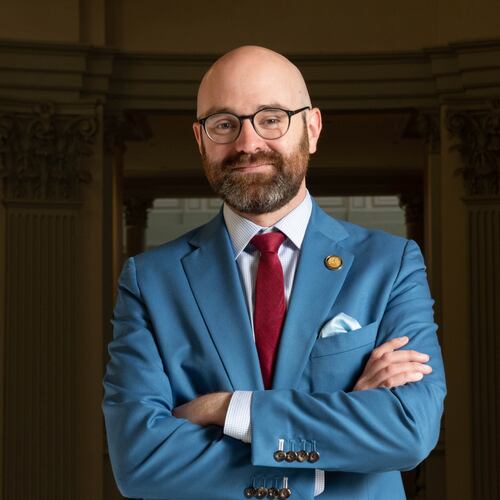The end of the Georgia Lottery's long hot streak is hitting the state, and the game's employees, in the pocketbook.
Because of the downturn and a new law limiting bonuses, top lottery employees will make a lot less money this year.
The Lottery Corp. announced in July a $47 million decline in ticket sales during the recently completed fiscal year and a $37 million cut in money going to education to pay for the through HOPE scholarships and pre-kindergarten classes. That ended a dozen-year run of increasing the amount of lottery money going to education.
The Lottery Corp. board recently approved a 12 percent budget cut for the agency payroll, bringing it to $17.5 million.
The cuts came only a few months after lawmakers approved legislation that drastically reduced the amount of money the Lottery Corp. can pay its employees in "incentive pay," or bonuses.
Lottery Board Chairman James Braswell said that, considering the state of the economy, board members also couldn't justify giving top staffers raises to make up for the money they lost in bonuses.
"Everybody is basically taking a hit right now," Braswell said. "It would not have been the right thing to do to make any base pay adjustments the way the economy is going."
Lottery Corp. CEO Margaret DeFrancisco received a $204,034 bonus in 2009 and $143,276 in fiscal 2010. Her bonus for the past fiscal year that ended June 30 has not been approved by the board.
DeFrancisco was paid a base salary of $367,000 last year, up from $353,000 the previous year and $286,000 in 2009. Her salary will not change this fiscal year, which began July 1, and she will receive no bonus.
Since the amount of lottery money going to HOPE and pre-kindergarten declined last year, there will be no other employee bonuses this year. That will mean overall pay cuts of $25,000-$30,000 for some of the Lottery Corp.'s top staffers, and likely more for DeFrancisco. Those same staffers received smaller bonuses in fiscal 2011 than in 2010, resulting in their second consecutive year of lower total compensation.
Top staffers at the lottery declined to comment on the cutbacks.
DeFrancisco has in the past defended the "incentive pay" program as a way to keep top staffers working for the Lottery. The results, she said, showed because ticket sales continued to climb.
During a legislative hearing in 2009, she was pushed by lawmakers to defend her bonus. DeFrancisco responded, "I deserve every single penny I make and then some."
But the Legislature's message to the Lottery Corp. about its bonuses hit home, Braswell said.
"The Legislature was pretty clear that they wanted the board to look very diligently at compensation," he said. "The perception was out there that the incentive payments were too high."
For years, the incentive pay plan has brought complaints from lawmakers, particularly since state budget cuts have forced agencies to reduce staff and furlough employees.
A new law passed this year to preserve the HOPE scholarship program included a provision that limited bonuses to no more than 1 percent of the net increase in lottery money going to education.
Gov. Nathan Deal, who pushed the HOPE legislation, applauded the board's decision to withhold raises from the top lottery staffers.
"The governor greatly appreciates that the board has led responsibly and in accordance with legislative intent," spokesman Brian Robinson said. "Governor Deal wants the Georgia Lottery to continue to attract talented leaders with competitive salaries, but we have to balance that with our desire to put every dollar we can into HOPE scholarships and the Pre-K program.”
Rep. Bill Hembree, R-Winston, former chairman of the House Higher Education Committee and a longtime critic of lottery bonuses, also supported the board's decision.
"It seems like the management of the lottery corporation sees that these are difficult economic times, lottery sales are down, and so they are adjusting to the economic climate of the state," Hembree said. "I am glad they see that and they are not arrogant as they have been in the past with . . . issuing bonuses.
"It is unfortunate for those who have had their pay reduced, but under the circumstances, I am glad to see it. I just hope they continue that and do not revert back to the system they had before, which seemed kind of out of control and kind of out of touch with what the rest of the state was dealing with."
About the Author
Keep Reading
The Latest
Featured



